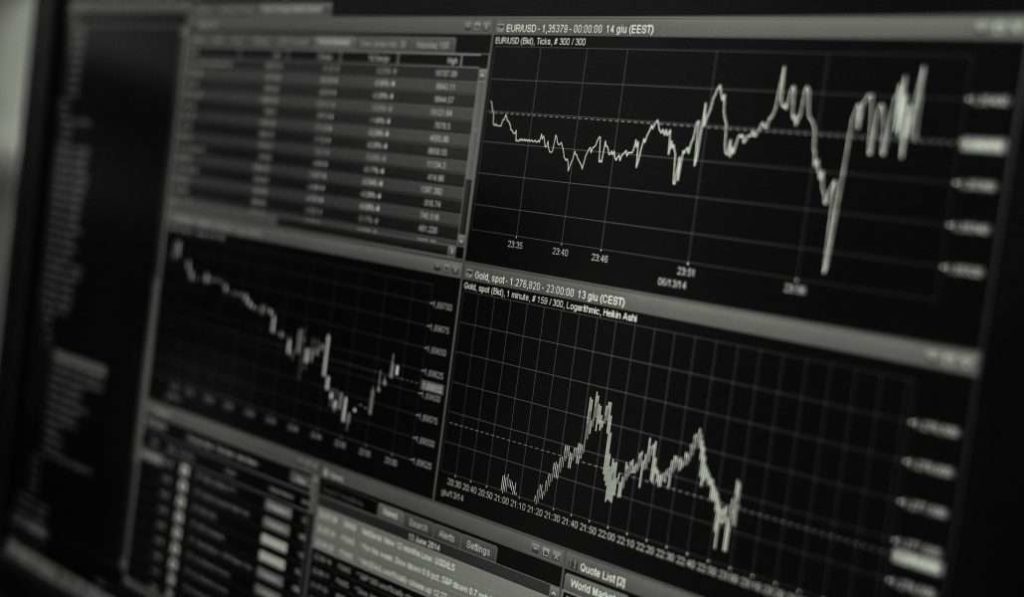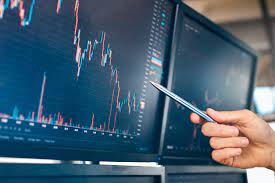Introduction to Forex Trading Courses
The foreign exchange (forex) market is the largest and most liquid financial market globally, with an average daily trading volume exceeding $6 trillion. Trading forex involves buying and selling currencies, making it a popular choice for investors looking for profit opportunities. However, the forex market's complexity and volatility require proper education and training to minimize losses and maximize gains. This is where forex trading courses come into play, providing essential knowledge and skills to navigate the market confidently.

Forex Trading Diploma
Forex Market Basics
Before delving into forex trading courses, it's crucial to understand some forex market basics:
Currency pairs and quotes: Forex trading involves the simultaneous buying of one currency and selling of another. These currencies are quoted in pairs (e.g., EUR/USD, USD/JPY), where the first currency is the base currency, and the second is the quote currency.
Major, minor, and exotic currency pairs: Major currency pairs consist of the most widely traded currencies (USD, EUR, JPY, GBP, CHF, CAD, and AUD). Minor pairs involve less popular currencies but still exclude the US dollar. Exotic pairs consist of a major currency paired with the currency of a developing economy (e.g., USD/TRY).
Market hours and trading sessions: The forex market operates 24 hours a day, five days a week. Trading sessions overlap across major financial centers, including Sydney, Tokyo, London, and New York.

Forex Trading Course
Types of Forex Trading Courses
There are various formats for forex trading courses to suit different learning preferences:
Online courses: These self-paced courses offer flexibility, allowing learners to access materials, such as video lectures and written content, at their convenience.
In-person seminars and workshops: These events provide an opportunity for face-to-face interaction with instructors and fellow traders, often focusing on specific topics or strategies.
Mentorship programs: One-on-one or small group coaching sessions offer personalized guidance from experienced traders.
Forex trading webinars: Live or recorded webinars provide insights into specific aspects of forex trading, often featuring expert traders sharing their strategies and experiences.

Best-Online-Forex-Trading-Course
Key Components of a Comprehensive Forex Trading Course
A well-rounded forex trading course should cover the following topics:
Forex market structure and participants: An overview of the market's organization, including major players like banks, hedge funds, and retail traders.
Fundamental analysis: Understanding how economic indicators, such as GDP, inflation, and interest rates, as well as political events, affect currency values.
Technical analysis: Learning how to analyze price charts using chart patterns, trendlines, and technical indicators, such as moving averages and RSI.
Trading strategies: Gaining knowledge of various approaches, including scalping, day trading, swing trading, and position trading.
Risk management and money management techniques: Implementing strategies to minimize losses, including setting stop-loss orders and determining position sizes.

online forex trading course
Trading psychology and discipline
Developing the right mindset, maintaining emotional control, and following a consistent trading plan. Trading psychology and discipline are crucial elements of a successful trading strategy. They refer to the mental and emotional aspects that impact a trader's decision-making process and overall performance in the market. Trading psychology involves understanding one's emotions, biases, and cognitive processes, while discipline refers to the ability to adhere to a well-defined trading plan, even when faced with emotionally charged situations.
Emotions such as fear, greed, and overconfidence can lead to impulsive decisions, resulting in poor trade execution and potential losses. To overcome these challenges, traders must develop emotional self-awareness and maintain a rational mindset when evaluating market conditions and executing trades.
Discipline plays a pivotal role in consistently implementing risk management practices, such as setting stop-loss orders and managing position sizes. It also ensures that traders stick to their pre-defined strategies, rather than succumbing to emotional impulses or deviating from their plan due to short-term market fluctuations.
Developing strong trading psychology and discipline requires self-reflection, practice, and patience. By cultivating these skills, traders can significantly enhance their decision-making process, minimize losses, and improve overall trading performance in the long run.
Selecting the Right Forex Trading Course
When choosing a forex trading course, consider the following factors:
Learning style and goals: Evaluate your preferred learning format and set realistic expectations for your trading journey.
Course content and structure: Ensure the course covers essential topics and offers a clear, logical progression.
Instructor's expertise and track record: Opt for courses led by experienced traders with proven success in the forex market.
Course duration and support: Determine whether ongoing support, such as access to resources or community forums, is available after the course's completion.
Pricing and value for money: Assess the course's cost against the value it provides and compare it with alternative options.

forex trading course
Top Forex Trading Courses to Consider
Several popular forex trading courses are available in the market, each with its unique features and benefits. However, one course that stands out among the rest is www.tradingcourse.net. This comprehensive platform offers superior value, providing over $1000 worth of books and numerous other advantages. Here's why this course deserves your attention:
TradingCourse.net: This all-in-one forex trading course is designed for traders of all skill levels. It covers everything from forex trading basics to advanced strategies, risk management, and trading psychology. The course's standout feature is the inclusion of over $1000 worth of trading books, ensuring you have access to a wealth of knowledge from industry experts.
Other noteworthy benefits of TradingCourse.net include:
Access to a thriving community: By joining TradingCourse.net, you'll become a part of an active community of like-minded traders, where you can exchange ideas, learn from each other's experiences, and receive support on your trading journey.
Expert-led webinars and workshops: TradingCourse.net regularly hosts webinars and workshops led by experienced traders, giving you the opportunity to learn new strategies, stay updated on market developments, and refine your skills.
Personalized mentorship: In addition to the wealth of resources available, TradingCourse.net offers personalized mentorship programs tailored to your individual needs and goals. This ensures that you receive the guidance and support required for your unique trading journey.
Lifetime access and updates: Once you enroll in TradingCourse.net, you'll have lifetime access to the course materials, including any updates or additions made in the future. This ensures that your knowledge remains current, allowing you to stay ahead in the ever-evolving forex market.
While other popular courses like Forex Trading A-Z™, Forex Signals & Mentoring Club, The Forex Trading Coach, and BabyPips School of Pipsology offer valuable insights, TradingCourse.net sets itself apart with its extensive collection of books, personalized mentorship, and ongoing support. Consider the unique features of each course to determine the best option for your learning style, goals, and budget.
Online, self-paced courses offer numerous benefits for learners seeking to expand their knowledge and skills while enjoying the flexibility to learn at their own pace. One of the main advantages is the ability to accommodate individual learning styles and schedules, allowing students to balance their personal, professional, and educational commitments more effectively.
Certification upon completion of an online course adds value by providing tangible evidence of the acquired knowledge and skills. This certification can be showcased on resumes, LinkedIn profiles, or shared with employers, increasing the learner's credibility and marketability in their respective fields.
Self-paced courses typically offer a wide range of learning materials, including video lectures, written content, quizzes, and interactive exercises. This diversity caters to various learning preferences, enabling students to engage with the content more effectively and solidify their understanding of the subject matter.
Another benefit of online courses is the opportunity to revisit the material as needed. Learners can go back to specific modules, review concepts, and reinforce their understanding, ensuring they fully grasp the course's content before moving forward.
Finally, online courses often provide access to discussion forums, instructor support, or peer groups, fostering a sense of community and encouraging networking with like-minded individuals. This collaborative environment can enrich the learning experience, promote knowledge exchange, and create valuable connections for personal and professional growth.
Utilizing Forex Trading Communities and Forums
Engaging with like-minded traders can enhance your learning experience and help you apply the knowledge gained from forex trading courses. Popular forex trading forums and online communities include Forex Factory, DailyFX, and Myfxbook. These platforms offer opportunities for discussions, sharing experiences, and seeking advice from experienced traders.
Practicing Your Skills with a Demo Account
Before diving into live forex trading, it's essential to practice your skills using a demo account. A demo account allows you to trade with virtual money in real market conditions, helping you gain hands-on experience and test your strategies without risking real capital. To use a demo account effectively:
Treat it like a real account: Apply the same level of seriousness and discipline as you would with real money.
Test your strategies: Use the demo account to refine your trading strategies and identify any weaknesses.
Monitor your progress: Track your performance over time to identify areas for improvement and measure your growth.

online trading course
Final Thoughts on Forex Trading Courses
Continuous learning is vital for success in the dynamic and complex forex market. A well-designed forex trading course can equip you with the essential knowledge and skills needed to navigate the market confidently. By selecting the right course, actively participating in trading communities, and practicing with a demo account, you'll be well on your way to becoming a proficient forex trader.


